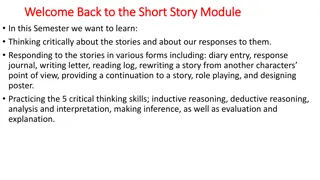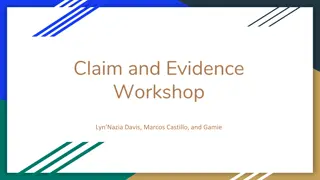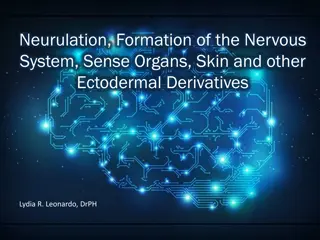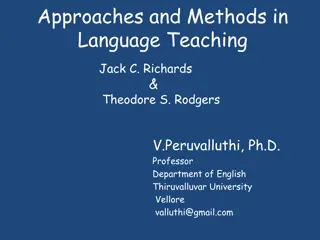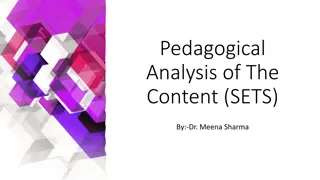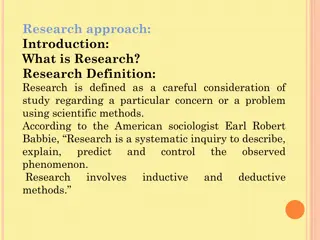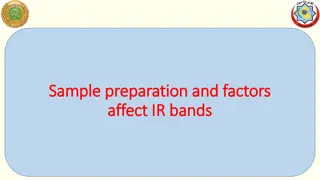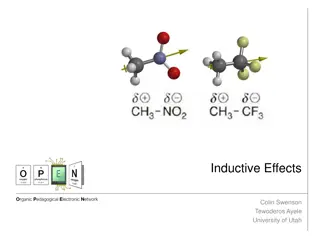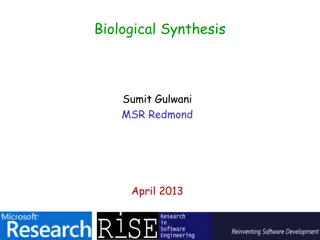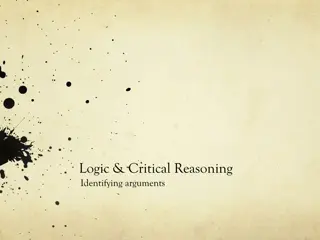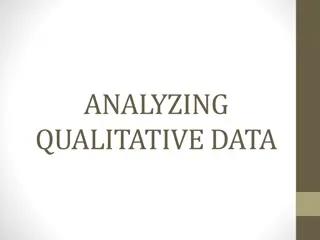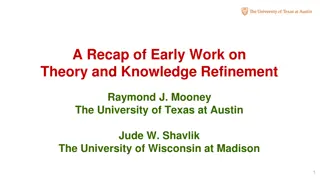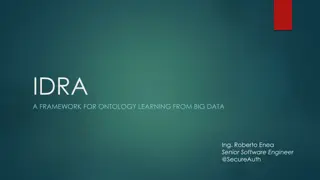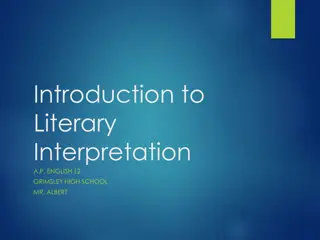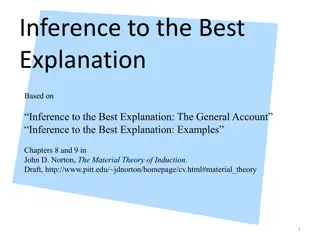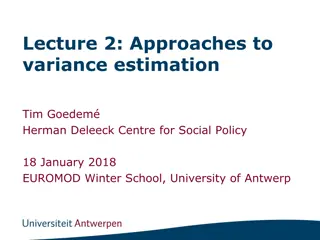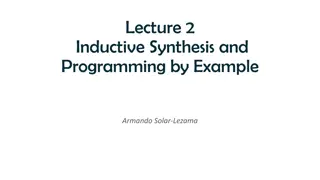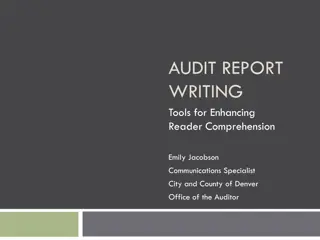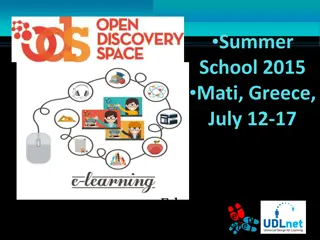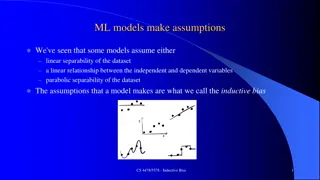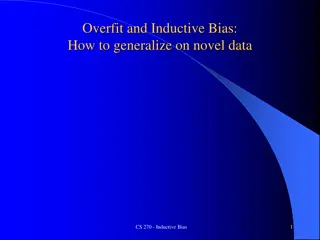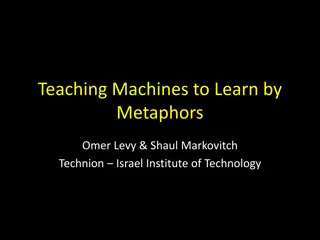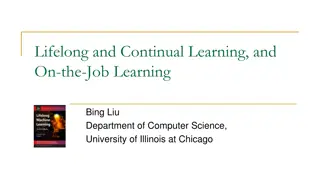Understanding Inductive and Deductive Reasoning
Inductive reasoning involves drawing general conclusions from specific observations, while deductive reasoning starts with general premises to derive specific conclusions. Induction uses experience or experimental evidence to make broad conclusions, while deduction follows from general to specific.
5 views • 7 slides
Understanding Power System Analysis: Voltage Drop Equations and Phasor Diagrams
Explore the derivation and application of voltage drop equations over transmission lines in power systems, considering inductive and capacitive loads. Learn how to draw phasor diagrams for different scenarios and understand the approximations used to analyze voltage losses.
6 views • 22 slides
Understanding the Inductive and Electromeric Effects in Organic Chemistry
The inductive effect in organic chemistry is the polarization of a bond due to electron-donating or withdrawing effects of adjacent groups, leading to a degree of polarity in the bond. This effect is distance-dependent and can be either electron-withdrawing or electron-releasing. On the other hand,
0 views • 12 slides
Engaging with Critical Thinking in Short Stories
Explore different ways of responding to short stories, from diary entries to role-playing, while honing critical thinking skills like deductive and inductive reasoning. Delve into character analysis, themes, and personal reflections to enhance understanding and engagement with the author's work.
0 views • 32 slides
Mastering the Toulmin Method for Constructing Persuasive Arguments
Learn how to effectively structure arguments using the Toulmin Method, which consists of Claim, Data, Warrant, Backing, Counterclaim, and Rebuttal elements. Explore reasoning and logic concepts, differentiate between inductive and deductive reasoning, and understand how to construct valid arguments
0 views • 30 slides
Embryonic Development: Key Processes and Organization
Embryonic development involves neurulation, organogenesis, and morphogenetic processes that shape the nervous system, sense organs, skin, and other ectodermal derivatives. The embryo undergoes allocation and differentiation processes, influenced by epigenetic events and the action of organizers. Emb
2 views • 25 slides
Institutionalism and Methodological Issues in Political Science
Institutionalism is a foundational concept in political science, emphasizing the study of governing institutions and their role in shaping political behavior. It explores inductive and deductive approaches to research, highlighting the significance of empirical evidence and theoretical assumptions.
0 views • 19 slides
Evolution of Language Teaching Methods: From Grammar Translation to Direct Method
Explore the historical development of language teaching methods, starting from the traditional Grammar Translation Method to the innovative Direct Method alongside key figures and principles. The transition from text-focused, deductive grammar teaching to conversational, inductive approaches marks a
2 views • 89 slides
Pedagogical Analysis of Sets in Mathematics: Key Concepts and Teaching Strategies
Explore the pedagogical analysis of SETS by Dr. Meena Sharma, focusing on major concepts like the meaning of SET, SET notation, classification of SETS, and fundamental operations. Understand minor topics such as examples of sets, SET notation methods, and types of SETS. Objectives include defining S
0 views • 8 slides
Understanding the Fundamentals of Research: A Comprehensive Overview
Research is a systematic inquiry aimed at understanding, describing, explaining, and predicting phenomena using scientific methods. It involves both inductive and deductive approaches, with a focus on logical reasoning and real-time data collection. Key characteristics include a systematic approach,
5 views • 11 slides
Understanding Factors Affecting IR Bands in Sample Preparation
Learn about the importance of sample preparation in infrared spectroscopy, including techniques for solid sample preparation and the choice of solvents to obtain accurate IR spectra. Discover how factors like inductive and resonance effects influence IR frequencies in different functional groups.
1 views • 14 slides
Understanding Inductive Effects in Organic Chemistry
Inductive effects play a crucial role in the reactivity and properties of organic molecules. This phenomenon involves the withdrawal or donation of electron density due to differences in electronegativity, impacting acidity, stability, and interactions with other molecules. Explore how inductive eff
0 views • 7 slides
Understanding Grounded Theory Research Design
Grounded theory research design is an inductive approach used to systematically develop theories based on data collected and analyzed. Developed by sociologists Glaser and Strauss, this methodology emphasizes staying close to the data throughout the analysis process. It involves systematic procedure
0 views • 20 slides
Innovative Learning Management System - LAMS at Belgrade Metropolitan University
Belgrade Metropolitan University (BMU) utilizes the Learning Activity Management System (LAMS) to enhance the learning process by integrating learning objects with various activities. This system allows for complex learning processes, mixing learning objects with LAMS activities effectively. The pro
4 views • 16 slides
Exploring Inductive Inferences and Their Relation to Probability
Nevin Climenhaga delves into the world of inductive inferences, categorizing them into downward, upward, and sideways forms. He discusses connections with probability, confirmation, epistemic defeat, and more, emphasizing the distinction between direct and indirect forms of inferences.
0 views • 15 slides
Understanding Deductive and Inductive Reasoning
Explore the world of deductive and inductive arguments through examples of deductive reasoning based on definitions and math, including categorical syllogisms, hypothetical syllogisms, and disjunctive syllogisms. Delve into inductive reasoning and the key distinctions between deductive and inductive
0 views • 26 slides
Infinite Lottery Machines: An Inductive Approach
An in-depth exploration of the Material Theory of Induction applied to infinite lottery machines, discussing the challenges and strategies for making inductive inferences in such scenarios. The analysis covers probabilistic considerations, countable additivity issues, equal probability of outcomes,
0 views • 22 slides
Insights into Biological Synthesis Techniques and Related Work
Explore the biological synthesis project by Sumay and Sumit Gulwani at MSR Redmond. The project delves into template-based approaches and safety considerations in artifact synthesis. The outline covers inductive synthesis, challenges, and successes in achieving synthesis goals. Discover unique namin
0 views • 15 slides
Understanding Logic and Critical Reasoning: Identifying Arguments
In the study of logic and critical reasoning, identifying arguments is a fundamental task. Arguments consist of premises supporting a conclusion, and they can be identified by specific indicators and techniques. Understanding argument structure and types of support, such as deductive and inductive,
2 views • 15 slides
Analyzing Qualitative Data: Steps and Coding Methods
Understanding qualitative data analysis involves several key steps, such as preparing the data through transcription, developing codes and categories using content analysis, revising categories based on the data, and reporting the analysis results. Content analysis helps in identifying words, themes
0 views • 32 slides
Understanding Deductive and Inductive Reasoning in Problem-Solving
Explore the differences between deduction and induction in problem-solving approaches. Deductive reasoning starts with a general statement and moves to specifics, offering certainty and objectivity, while inductive reasoning begins with specifics and arrives at a generalization, providing flexibilit
0 views • 11 slides
Evolution of Theory and Knowledge Refinement in Machine Learning
Early work in the 1990s focused on combining machine learning and knowledge engineering to refine theories and enhance learning from limited data. Techniques included using human-engineered knowledge in rule bases, symbolic theory refinement, and probabilistic methods. Various rule refinement method
0 views • 12 slides
Framework for Ontology Learning from Big Data with IDRA
IDRA (Inductive Deductive Reasoning Architecture) presents a comprehensive framework for ontology learning, focusing on data modeling and architecture components. ETL (Extract Transform Load) processes play a vital role in semantic enhancement of data, especially in identity and access governance co
0 views • 25 slides
Analyzing Texts Using Inductive Reasoning in Literary Interpretation
Utilizing inductive reasoning in literary interpretation involves examining specific details within a text to develop a debatable thesis statement supported by trends, patterns, and connections found in the material. This analytical approach requires a methodical breakdown of a writer's techniques t
0 views • 12 slides
The Direct Method in Language Teaching
The Direct Method, also known as the DM, emphasizes teaching the target language without translation. It aims to improve students' communication skills and focus on vocabulary and pronunciation over grammar. Teachers play a direct role in class activities, while students engage in interactive langua
0 views • 8 slides
Enhancing Simulation Learning Through Effective Debriefing Practices
Debriefing in simulation-based education plays a crucial role in improving learning outcomes and psychological safety. This approach focuses on perceptions, experiences, and expectations, utilizing a combination of deductive and inductive methods. Key findings suggest that faculty support and a supp
0 views • 18 slides
Computational Learning Theory: An Overview
Computational Learning Theory explores inductive learning algorithms that generate hypotheses from training sets, emphasizing the uncertainty of generalization. The theory introduces probabilities to measure correctness and certainty, addressing challenges in learning hidden concepts. Through exampl
0 views • 43 slides
Understanding the Scientific Method and Objective Approach
Explore the steps of the scientific method, importance of objectivity, and key concepts like hypothesis, null hypothesis, accuracy, precision, and sample size. Distinguish between inductive and deductive reasoning, as well as theory versus natural law in scientific research.
0 views • 12 slides
Effective Sermon Structure for Impactful Delivery
Discover the essential elements of structuring a sermon effectively, drawing parallels between buildings and sermons. Learn key components such as coordinating points, focus on recipients, and proper tense usage. Explore different sermon structures, inductive-deductive approaches, and the importance
0 views • 25 slides
Inference to the Best Explanation - Examples in Scientific Theories
The concept of Inference to the Best Explanation (IBE) emphasizes the importance of theories or hypotheses that not only predict evidence but also provide the best explanation for it. Illustrated through examples from Darwin's theory of natural selection and Einstein's General Theory of Relativity r
0 views • 23 slides
Approaches to Variance Estimation in Social Policy Research
This lecture discusses approaches to estimating sampling variance and confidence intervals in social policy research, covering topics such as total survey error, determinants of sampling variance, analytical approaches, replication-based approaches, and the ultimate cluster method. Various methods a
1 views • 34 slides
Programming by Example: A Journey into Inductive Synthesis
Delve into the realm of Programming by Example (PBE) and its motivating factors, distinctions from Programming by Demonstration (PBD), history of inductive learning, and the significance of generalization from observations. Explore how PBE and PBD fit into the landscape of inductive learning and mac
0 views • 32 slides
Enhancing Reader Comprehension in Audit Report Writing
Tools for improving reader comprehension in audit report writing, including deductive writing, economy of words, and descriptive headings. Learn the difference between inductive and deductive writing and how to make audit reports more engaging and informative. Practical examples provided.
0 views • 43 slides
Innovative Educational Scenario for Teaching Principles of Dynamics
This educational scenario focuses on the principles of dynamics, emphasizing the causality in physics through inductive teaching methods. Students are engaged in experiments to understand the concept of motion and causality in a multidisciplinary approach involving maths, science, ICT, psychology, a
0 views • 15 slides
Interactive Theorem Provers: Ensuring Correctness in Programming
Explore the world of Interactive Theorem Provers, where you can write definitions, proofs, and automatically validate the correctness of your code. Learn about writing definitions in Coq, inductive definitions, and completing exercises to solidify your understanding.
0 views • 10 slides
Exploring Reasoning as a Method of Knowledge Acquisition
Reasoning serves as a fundamental way of knowing, enabling individuals to transcend immediate experiences, build knowledge, and evaluate beliefs. This process involves the application of logic, examining the interplay between beliefs, ideas, and truth. By integrating reason with imagination, individ
0 views • 37 slides
Understanding Inductive Bias in Machine Learning
Machine learning models rely on inductive bias, which are the assumptions made by algorithms to generalize from training data to unseen instances. Occam's Razor is a common example of inductive bias, favoring simpler hypotheses over complex ones. This bias helps algorithms make predictions and handl
0 views • 20 slides
Understanding Overfitting and Inductive Bias in Machine Learning
Overfitting can hinder generalization on novel data, necessitating the consideration of inductive bias. Linear regression struggles with non-linear tasks, highlighting the need for non-linear surfaces or feature pre-processing. Techniques like regularization in linear regression help maintain model
0 views • 37 slides
Teaching Machines to Learn by Metaphors at Technion Israel Institute of Technology
This study explores the concept of teaching machines using metaphors, focusing on learning by induction, transfer learning approaches, common inductive bias, instances, and features. The research offers a new approach to transfer learning through metaphors, aiming to enhance the understanding and ap
0 views • 71 slides
Lifelong and Continual Learning in Machine Learning
Classic machine learning has limitations such as isolated single-task learning and closed-world assumptions. Lifelong machine learning aims to overcome these limitations by enabling models to continuously learn and adapt to new data. This is crucial for dynamic environments like chatbots and self-dr
0 views • 32 slides



